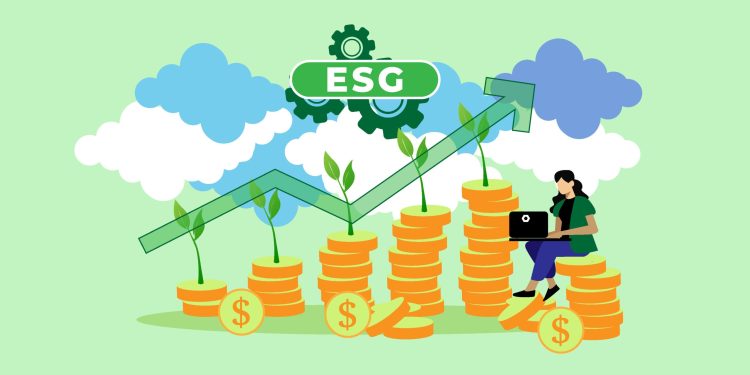The Asia-Pacific region, home to some of the world’s fastest-growing economies and largest carbon emitters, is witnessing a significant shift in how businesses and investors view sustainability. Environmental, Social, and Governance (ESG) criteria have become crucial in shaping investment strategies and corporate policies in this region. From China to Japan, India, and Australia, ESG initiatives are being integrated into business models, influencing corporate decisions, government regulations, and investor behavior. This article explores the rising importance of ESG in the Asia-Pacific region, the key players leading this movement, government policies that are fostering this shift, and the challenges in establishing uniform ESG standards.
Rising Importance of ESG Criteria in the Region
ESG investing has witnessed a dramatic surge in global significance over the past decade, and the Asia-Pacific region is no exception. The growing awareness of climate change, social inequality, and corporate governance failures has spurred a shift towards responsible investing. The region’s economic trajectory, environmental concerns, and social challenges make ESG criteria particularly pertinent for future growth and stability.
As the region continues to urbanize and industrialize, environmental sustainability is a critical concern. Countries like China and India, which have some of the largest populations and fastest-growing economies in the world, are major contributors to global carbon emissions. However, they are also showing increasing signs of adopting more sustainable practices, driven by both domestic needs and international pressure to address climate change. At the same time, rising wealth in countries like Japan, South Korea, and Australia has led to increased demand for better social governance and environmental protection.
In the context of the region’s rapid economic growth, the social aspects of ESG, such as labor rights, income inequality, and healthcare, are becoming central to both corporate governance and investment practices. Companies are under mounting pressure to ensure that their business models promote sustainable social practices, including fair wages, workplace safety, and human rights.
The governance aspect of ESG in Asia-Pacific is equally significant, with improving transparency, accountability, and ethical management being at the forefront of investor concerns. Corporate governance failures in the region, such as the scandals in Japan and South Korea, have highlighted the need for stricter governance standards. Investors are increasingly looking at companies with strong ESG frameworks as less risky and more likely to ensure long-term profitability.
Key Markets and Companies Leading the ESG Movement
Several countries in the Asia-Pacific region are leading the way in ESG adoption, driven by both domestic and international factors. China, as the world’s largest emitter of carbon dioxide, has made significant strides in addressing environmental concerns and is setting ambitious sustainability targets. The Chinese government’s focus on renewable energy, electric vehicles (EVs), and green financing has placed the country at the forefront of the global ESG movement. Companies like BYD, a leader in electric vehicles, and CATL, a major battery producer, are pioneering the transition to a low-carbon economy.
Japan has also made notable progress, particularly in corporate governance and environmental sustainability. The Japanese government has introduced reforms to improve transparency in business operations, and companies such as Toyota and Panasonic are investing heavily in renewable energy and green technologies. Moreover, Japan’s emphasis on corporate governance reforms has led to significant improvements in shareholder rights and executive accountability.
In South Korea, companies like Samsung and LG are not only investing in green technologies but also focusing on improving their social policies, such as enhancing labor rights and improving gender equality in the workplace. The South Korean government has also been proactive in promoting ESG-friendly investments through various green bonds and funds.
Australia, with its strong focus on natural resource management, is making strides in social governance, particularly concerning Indigenous rights, workplace diversity, and climate change adaptation. Companies like BHP, one of the world’s largest mining companies, are increasingly aligning their business practices with ESG criteria, focusing on reducing carbon emissions and supporting community development.
India, while still at the early stages of ESG integration, is witnessing an uptick in ESG awareness among its large corporations and investors. Companies such as Tata Consultancy Services (TCS) and Infosys are leading the charge, emphasizing sustainability, ethical business practices, and social responsibility. India’s growing middle class and increasing focus on renewable energy and financial inclusion are also driving demand for ESG-focused investments.

Government Policies and Investor Demand Driving Change
Government policies play a crucial role in accelerating the adoption of ESG practices in the Asia-Pacific region. In China, the government’s commitment to carbon neutrality by 2060 has spurred a wave of green financing initiatives, including the development of green bonds and the promotion of renewable energy projects. The Chinese government has also introduced regulations mandating greater corporate transparency and sustainability disclosures, encouraging companies to integrate ESG criteria into their operations.
India’s government has recently introduced its own ESG-related initiatives, such as the National Action Plan on Climate Change (NAPCC), which sets out the country’s strategy for addressing environmental challenges. In addition to climate action, India has enacted laws to improve corporate social responsibility (CSR), requiring companies to allocate a percentage of their profits towards social welfare projects.
Japan’s government has implemented guidelines for corporate governance, particularly the Stewardship Code and the Corporate Governance Code, which encourage companies to disclose ESG-related information and prioritize long-term sustainability over short-term profits. These policies have been instrumental in reshaping how businesses operate and report on ESG factors.
Australia has been active in the ESG space as well, with the Australian Securities and Investments Commission (ASIC) and the Australian Prudential Regulation Authority (APRA) introducing regulations that require companies to disclose their ESG risks. Additionally, the Australian government’s focus on renewable energy investment and carbon reduction has spurred both private and public sector interest in ESG-related ventures.
Investor demand is another key driver behind the rise of ESG in the Asia-Pacific region. Globally, institutional investors are increasingly factoring ESG criteria into their investment decisions, driven by the belief that companies with strong sustainability practices are less risky and more likely to deliver long-term returns. This shift has been particularly noticeable in Asia-Pacific, where institutional investors are adopting ESG-focused portfolios and engaging in shareholder activism to encourage better governance and sustainability practices.
Furthermore, the rise of ESG-focused funds and exchange-traded funds (ETFs) has provided investors with easy access to companies that meet certain environmental, social, and governance standards. As the region’s middle class expands, demand for sustainable investment options is expected to rise, particularly among younger generations who are more conscious of the impact of their investments on the environment and society.
Challenges in Adopting Uniform ESG Standards
Despite the growing momentum behind ESG in the Asia-Pacific region, significant challenges remain in establishing uniform ESG standards. One of the primary obstacles is the lack of standardized reporting requirements. While countries like Japan and Australia have made strides in promoting ESG disclosures, other countries in the region have yet to implement comprehensive regulations. In China and India, for instance, ESG reporting standards are still in their infancy, and many companies are not yet required to disclose comprehensive ESG data.
The diversity of political, economic, and social environments across the region further complicates the adoption of uniform standards. While advanced economies like Japan and Australia are setting ambitious ESG goals, developing economies like India and Indonesia face challenges related to infrastructure, governance, and public awareness. For many companies in these countries, balancing the need for economic growth with the demands of sustainability remains a complex issue.
Furthermore, there are concerns about the integrity and credibility of ESG ratings and disclosures. As ESG investing grows in popularity, the risk of “greenwashing”—where companies present themselves as more sustainable than they are—has increased. In response, investors and regulators are calling for more rigorous standards to ensure that ESG claims are credible and transparent.
Conclusion
Asia-Pacific’s ESG revolution is in full swing, driven by government policies, growing investor demand, and the commitment of leading companies to sustainability. However, the path to widespread adoption of uniform ESG standards is fraught with challenges. While some countries and businesses in the region are leading the way, others face significant hurdles in integrating ESG into their corporate strategies. As the region continues to evolve, the need for collaboration, innovation, and stricter regulatory frameworks will be key to ensuring that the Asia-Pacific becomes a leader in sustainable investment and responsible business practices.





























